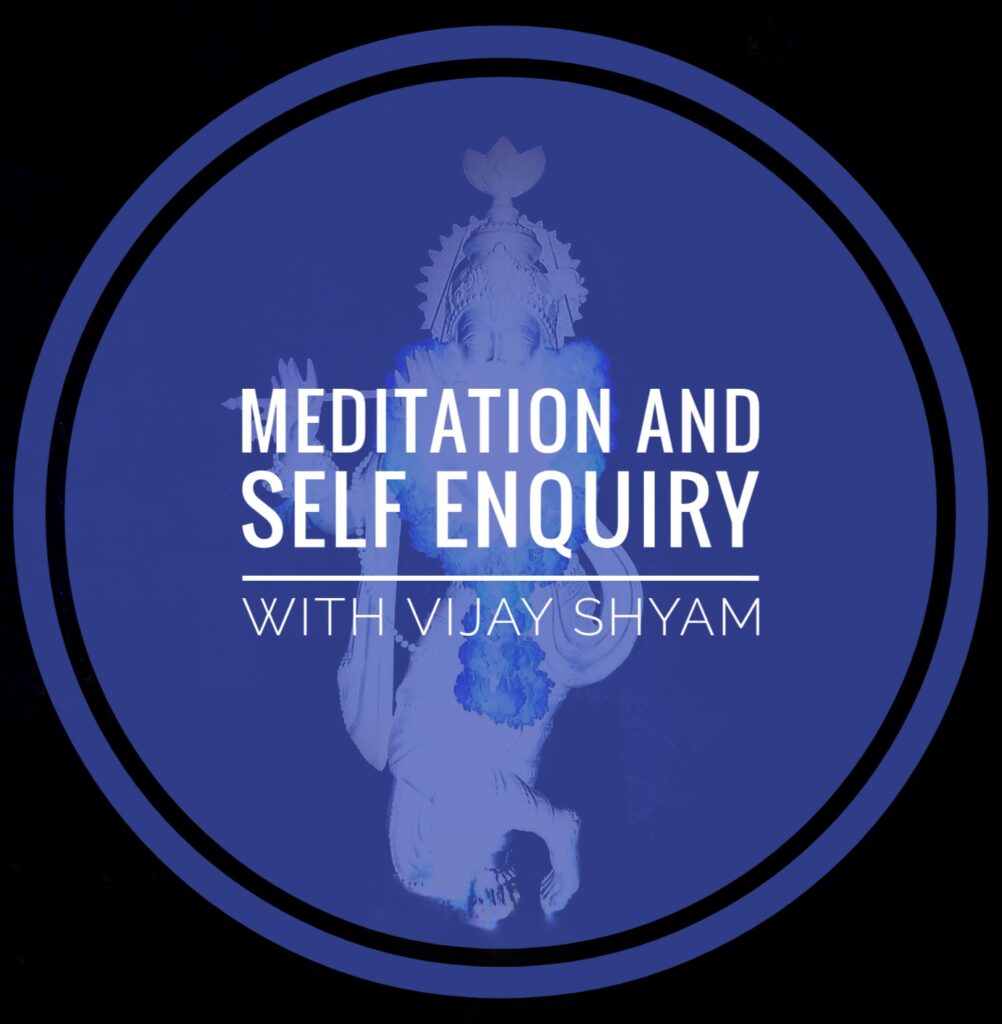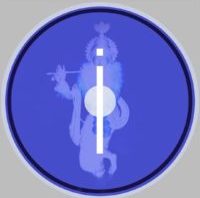Have we misunderstood what happiness is?

Everyone is looking for something. Everyone has a desire, an urge, a longing, a partial plan, or a feeling that something could or should be different, more meaningful, more successful, more satisfying, or just better. That urge can make us scroll endlessly on social media or travel the globe.
We are looking for something that we can add to our lives. Something that can give us the feeling of being safe, of being valuable, loved, and peaceful, and everyone has a, perhaps subconscious, idea of how it will feel or look when the goal is reached or fulfilled. When everything falls in to place.
Our sense of having to achieve something must be based on an experience that something seems inadequate to us, so we strive to reach from a state of imperfection to a state of perfection.
We are always busy finding a way to something “better”.
What it is we think we should achieve depends on what we define ourselves as, and what we define ourselves as defines our idea of success.
These definitions vary unendingly depending on our personality, background, culture, and economy.
Most people perceive and assign value to the world and themselves in the same way that their social circle does and rarely ask themselves why they really have the goals and values they have, and whether it really brings them what they are looking for.
But why do we see the world and ourselves as deficient?
If I am deficient, what does the word “I” cover?
If “I” is the body, I seek joy by optimizing and keeping the body healthy, but it makes old age and death a tragedy.
If “I” is defined through a relationship, I perceive the love given / received from another person as the most important thing and being alone is like dying.
If “I” is my profession, job-success is the most important thing and unemployment and retirement are a threat.
If “I” am a soul who, according to pre-set rules, is to be judged by God by Judgment Day to either enter into paradise or hell, my life is a quest for proper behaviour, longing for paradise and fearing hell.
The variation of the set of rules is as diverse as humanity, and most live according to a random combination of many kinds of conscious and unconscious values.
Our lives thus become a kind of board game whose rules we cannot quite see for ourselves and whose purpose we are never quite sure of. The only thing many can agree on is that they want to achieve “more”, but what we think we will get if we reach “the goal” is often uncertain.
Therefore, let us return to the starting point with the question: What are we?
We call ourselves humans. When we consider ourselves, we see bodies with senses and identity. There is also something we cannot see but which we assume is there. It has many names. In man we call it consciousness, and although we do not know what consciousness is, let us use the word here for convenience. Let’s say we are conscious beings. Animals and plants may also have the awareness they need. Maybe atoms have some kind of consciousness. Matter, animals, and plants operate in a fixed system that runs automatically; a rose is a rose is a rose. A cat has been a cat all its life. Gold is gold. Man, on the other hand, can do something extraordinary; When we direct our human consciousness outward, to the world or to the body we live in, it seems as if we can see behind things, understand processes and contexts, and create civilizations, arts and sciences. We see things, judge them and act to make something “better”. We fix. We dream of “more”.
We fly, we dig deep into the ground and we create artificial limbs and manipulate our DNA.
Both amazing and horrible things that animals and plants cannot create, have in this way sprung from our creative awareness and longing for the “better”. We are also capable of observing ourselves, knowing that we exist and that we are co-creators of our identity, our history, our memories and our values. Often, however, we only see fragments and make the mistake of thinking that the part we see before us is the whole. We believe that “our” slice is the whole world and the truth. The problem is that when we think we have seen “it all” we stop asking questions and there is a danger that we will be locked into the field we perceive as “right”. We lose the ability to look critically at the values on which we base our reality, in other words, we become dogmatic and rigid. It can happen in all fields.
It seems that a significant difference between us humans and the higher mammals is that man has the ability to observe his thoughts and, moreover, observe that he observes his thoughts. (Try it). And even more incredible; we can observe not just thoughts; we can turn the floodlight of attention on themselves. In fact, we can “see” the background thoughts arise on.
We can turn our consciousness towards consciousness itself, and when we do that, there is nothing to describe, nothing we need to make sense of and fix. In this way, the thoughts calm down. When thoughts are at rest, we experience a “nothingness”, but when thoughts move in interaction with something, we experience it as if we are interacting with the world “out there”, outside ourselves. Consciousness at rest is experienced in itself as peaceful and perfect, it is not fragmented and not going anywhere. Consciousness IS simply. It exists. It’s whole.
Although science cannot tell us what that which we here call consciousness is, or whether it exists at all, science would not exist without consciousness. If we believe that science has seen “it all” and not just a fragment, the above statement must be seen as a paradox. Paradoxes can be openings to deeper insights.
So, let’s say, as a thought experiment, that we are conscious beings, and that consciousness acts through the being, which is the body, thoughts and emotions. We know from experience that the world, body, and mind are constantly moving and that through them, we never achieve a lasting experience of satisfaction. Perhaps our very experience of unpredictable variability is the background, the incentive for us to look for something constant that we can rely on and achieve peace. “More” is obviously never enough and never constant. But where does our idea of something constant come from? It cannot arise without an inherent instinctive knowledge that something is immutable, so where does the instinctive knowledge come from? We have found that when we focus consciousness on ourselves there is the possibility of an experience of something unchanging, a peaceful “nothing”. So that “something” must already be in us.
It looks like we are two things at once; something personal, which is a flow of named fragments in constant change, and something impersonal and indescribable, which may be a kind of unchanging background.
So again; What are we? What are we looking for?
We call ourselves the knowing man, Homo Sapiens. Maybe we should call ourselves ‘discovering / seeking man’, for what knowledge are we born with other than we exist? Everything else we discover by searching.
If we define ourselves as the fragmented being that always changes, then we automatically seek peace and wholeness.
The problem is that when we identify with the body, the mind, and the world and say that it is “the whole” then we are forced to seek something constant and whole in a field of perpetually fragmented movement.
Assuming, on the other hand, that we are consciousness, which is constant, is there any reason or opportunity at all to seek something?
Senses and intellect are calibrated to perceive the world as differences, division, and eternal change. But what in us instinctively knows that immutability and wholeness exist? Could it be a backdrop of a constant consciousness?
What then is it in us who seek peace? It seems that it is the fluctuating mind which, because it consists of senses, intellect, thoughts, and emotions that constantly divide and judge, therefore experiences the world and itself as imperfect. But what role does, what we here call consciousness, play? Is it not consciousness that gives life to the mind and thus fuels the ability to know and to yearn?
Here we have yet another paradox: that which knows that peace exists is already in a state of peace and does not seek. That which seeks can never experience peace and wholeness, because its nature is volatile and fragmented.
But something that is volatile and fragmented does not exist at any point in time.

How? A river for example. What is it? If we look at it then it does not start at a certain point and does not end either. It dissolves in the sea, evaporates, falls like rain, becomes snow, drops, turns into a creek and maybe again a river. Its banks are diffuse and boundless when we look closely at them. The river consists of water; H2O molecules, which consist of the atoms hydrogen and oxygen. Atoms are 99% void and the 1% consists of protons, neutrons and electrons, which in turn consist of elementary particles. Elementary particles are in their essence waves in a field we do not quite know what is. So, what is a river? It can only be an approximation. An idea. A word.
Just as “a river” is nothing but a concept that disappears through uncompromising multi-directional observation, also our bodies, if we observe them without stopping and naming, becomes an unlimited field of indescribable being in transition. (Try it)
So, to take this thought one step further now: if we observe the mind in the same way as we observe the river or the body, does the seeking mind exist at all? Is it just an approximation? An idea? word?
Perhaps the reason for the experience of imperfection is that, by mistake, we have identified ourselves with a fragment? Perhaps what we identify with is nothing more than an idea created by the divisive senses and the intellect’s habitual reductive naming.
Is searching and the searched basically identical, and does this division disappear when we really look at it?
So, when Martin Fluri finds that what we are looking for does not exist, is this observation a result of the search? Because when we search with an open mind, it may happen that what we thought we were when we started searching simply disappears. When we disappear as that which we thought we were, the idea of what we thought we should seek also disappears.
Then, what’s going on here?
If it is true that one can only observe something “other”, something that is not “oneself”, then what is it in us that observes our fragmented world and mind, and what is it that seeks?
Is there an observing and free consciousness? A consciousness which is the source of the mind and which is the reason for the instinctive experience that there is something constant that is greater than the senses, thoughts, and emotions? Is that consciousness what we really are? Is it that which says the words “I exist”?
Is it the mind that experiences itself as deficient, and by nature longs for something to be trustworthy, and therefore instinctively reached out in the volatile world for this constant? That effort always leads to frustration.
What is “I” then? Mind, body, ego, intellect, or consciousness?
The definition of “I” creates the criterion for our concept of happiness and thus our search.
If we seek from the feeling of missing something, we have defined ourselves as imperfect and cut off, and then our insatiable need becomes a search that, as Fluri writes, can “become a threat to our existence”.
If, on the other hand, you experience yourself and the world as “whole”, you know what is absolutely necessary and essential to live, and there is the opportunity to live life easily without the constant pursuit of growing, unstable, and imagined needs.
When you experience the essence of your core and the world as a whole and as one and the same, nothing can be lost, and nothing needs to be achieved.
Kåre Troelsen- Vijay Shyam, Sep 2019


+ There are no comments
Add yours